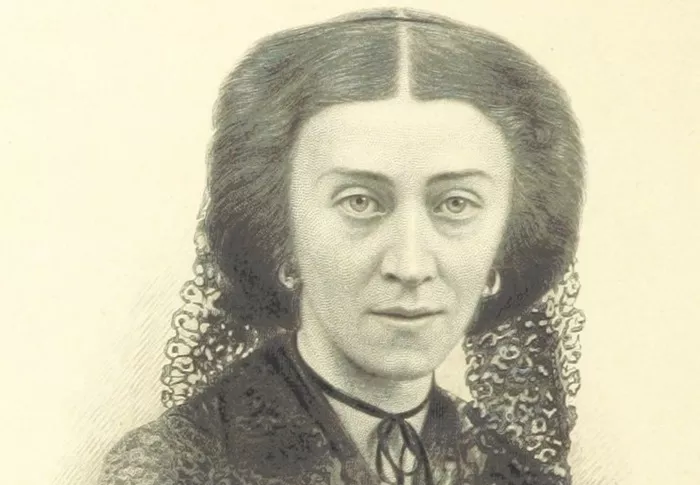Adelaide Anne Procter stands as a notable figure in the landscape of 19th Century British poetry. Though sometimes overshadowed by her contemporaries, her work reveals a compassionate voice that echoed the social and moral concerns of Victorian England. As a British poet, she contributed uniquely to British poetry with her lyrical sensitivity, religious themes, and commitment to social reform. This article explores Procter’s life, literary contributions, and place within 19th Century British poetry. It also compares her with poets of the same period to better appreciate her distinctive role.
Adelaide Anne Procter
Adelaide Anne Procter was born in 1825 into a family of intellectuals and artists. Her father, Bryan Procter (pen name “Barry Cornwall”), was a well-known poet, which provided Adelaide with a literary environment from an early age. This family background cultivated her interest in literature and poetry, allowing her to develop as a British poet amid the Victorian cultural milieu.
Her education was typical for a woman of her social class, emphasizing religion, music, and literature. However, Procter’s access to literary circles and her father’s mentorship were crucial in nurturing her poetic talents. She began writing poetry in her youth and quickly developed a voice that was gentle yet powerful in addressing both personal and social themes.
Literary Style and Themes
Adelaide Anne Procter’s poetry is characterized by clarity, simplicity, and emotional depth. She wrote in a manner accessible to many, which made her poems widely popular during her lifetime. Her style often included lyrical qualities, employing rhyme and rhythm that resonated with Victorian readers. Procter’s work was also imbued with religious sentiment, reflecting her strong Christian faith.
Religion and Morality
A recurring theme in Procter’s poetry is her religious devotion. She often explored ideas of faith, divine love, and spiritual consolation. Unlike some poets who questioned religion, Procter’s verses reaffirmed it, providing comfort to her audience. This focus aligned her with many 19th Century British poets who used poetry as a medium to explore spiritual concerns.
Social Reform and Compassion
Beyond spirituality, Procter’s poetry also reveals a deep concern for social issues. She was known for her sympathy toward the poor and disadvantaged, frequently highlighting themes of charity and social justice. In many of her poems, she advocates kindness, mercy, and care for the marginalized, reflecting Victorian England’s growing awareness of social inequalities.
This social consciousness set Procter apart from many of her contemporaries, positioning her poetry not just as aesthetic expressions but as calls for moral improvement and reform.
Major Works and Publications
Adelaide Anne Procter published several volumes of poetry and contributed to popular magazines and periodicals of her time, including Household Words edited by Charles Dickens, with whom she had a close working relationship.
Her most famous collections include:
Legends and Lyrics (1858)
A Chaplet of Verses (1862)
These works encapsulate the breadth of her poetic concerns, from delicate lyricism to pointed social commentary.
Comparison with Contemporary 19th Century British Poets
To understand Procter’s place in British poetry, it is useful to compare her with other significant 19th Century British poets such as Elizabeth Barrett Browning, Christina Rossetti, and Alfred Lord Tennyson.
Adelaide Anne Procter and Elizabeth Barrett Browning
Both Procter and Barrett Browning engaged deeply with social issues. Barrett Browning’s Sonnets from the Portuguese and The Cry of the Children challenged social injustices like child labor and women’s rights. Similarly, Procter’s poetry reflects her humanitarian concerns. However, Procter’s style was more accessible and less dramatic than Barrett Browning’s. While Barrett Browning’s poetry often carries intense emotional and intellectual weight, Procter’s work emphasizes gentle persuasion and moral instruction.
Adelaide Anne Procter and Christina Rossetti
Christina Rossetti, another prominent 19th Century British poet, shared Procter’s religious focus. Both wrote devotional and meditative poetry, but Rossetti’s work is generally more complex, with a darker tone and richer symbolism. Procter’s poetry is more straightforward and aimed at public consumption, which contributed to its widespread popularity in Victorian society.
Adelaide Anne Procter and Alfred Lord Tennyson
Tennyson, as Poet Laureate, was a towering figure in 19th Century British poetry. His works often dealt with grand themes of heroism, mythology, and national identity. In contrast, Procter’s poetry focused more on personal piety and social compassion. While Tennyson’s influence was vast, Procter made her mark by speaking to the Victorian middle classes and the reform-minded public, thereby filling a different niche within British poetry.
Adelaide Anne Procter’s Influence and Legacy
Though Adelaide Anne Procter died relatively young in 1864, her poetry continued to be appreciated throughout the late 19th century. Her ability to blend religious devotion with social awareness helped bridge the gap between poetry as an art form and poetry as a vehicle for moral education.
Her work influenced other writers and poets, especially women, who sought to use poetry to engage with public issues without sacrificing lyric beauty. Procter’s poems also helped popularize charitable values and empathy during a time of significant social change in Britain.
Conclusion
Adelaide Anne Procter remains an important 19th Century British poet whose contributions enrich the tapestry of British poetry. Through her accessible style, sincere religious faith, and commitment to social justice, she provided Victorian readers with poems that were both beautiful and meaningful.
By comparing her with contemporaries such as Elizabeth Barrett Browning, Christina Rossetti, and Alfred Lord Tennyson, we see how Procter carved a unique space within British poetry. Her legacy is that of a poet who used her art not only to reflect personal emotion but also to inspire compassion and reform in society.
In the broader scope of 19th Century British poetry, Adelaide Anne Procter exemplifies how poetry can be a gentle yet powerful force for social and spiritual good. Her work deserves renewed attention and study as a vital part of the British poetic tradition.

